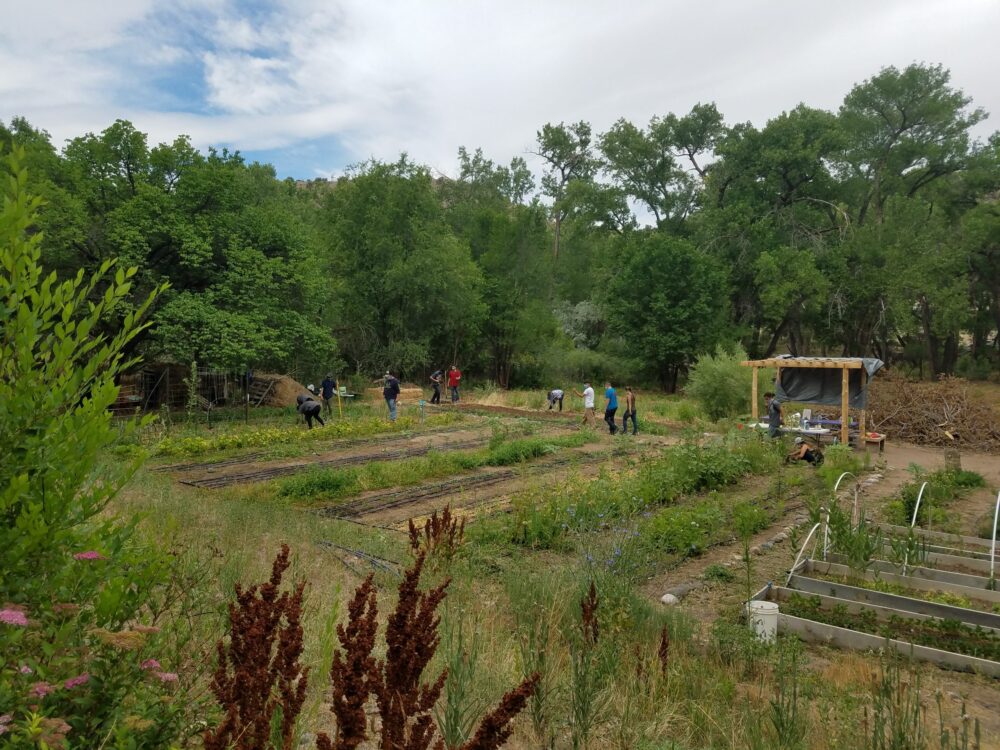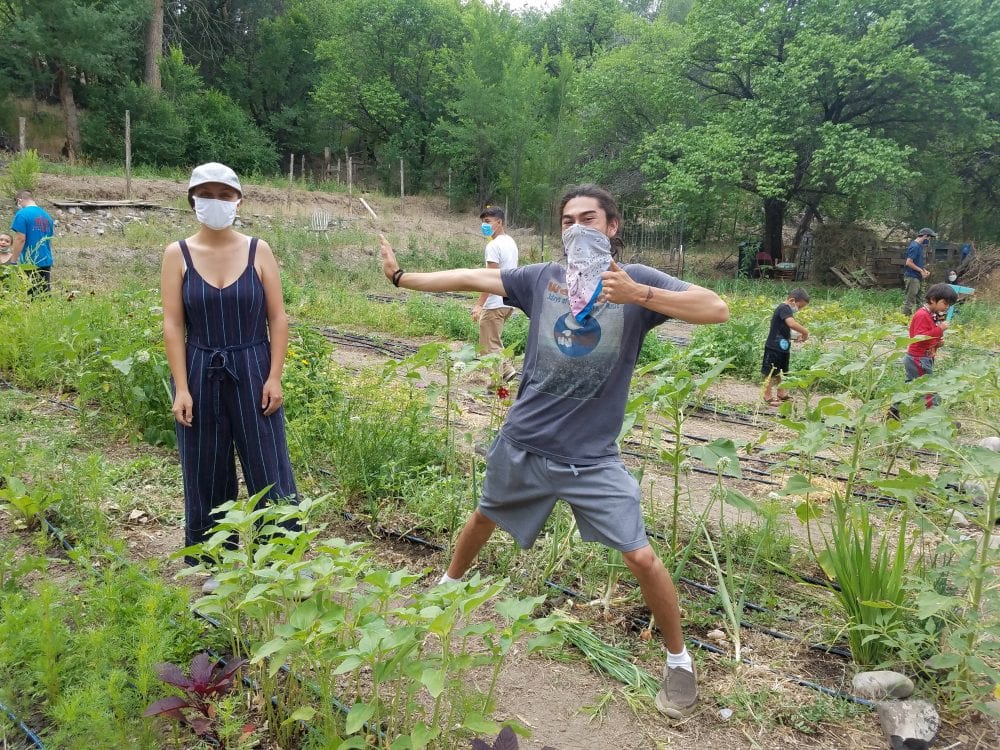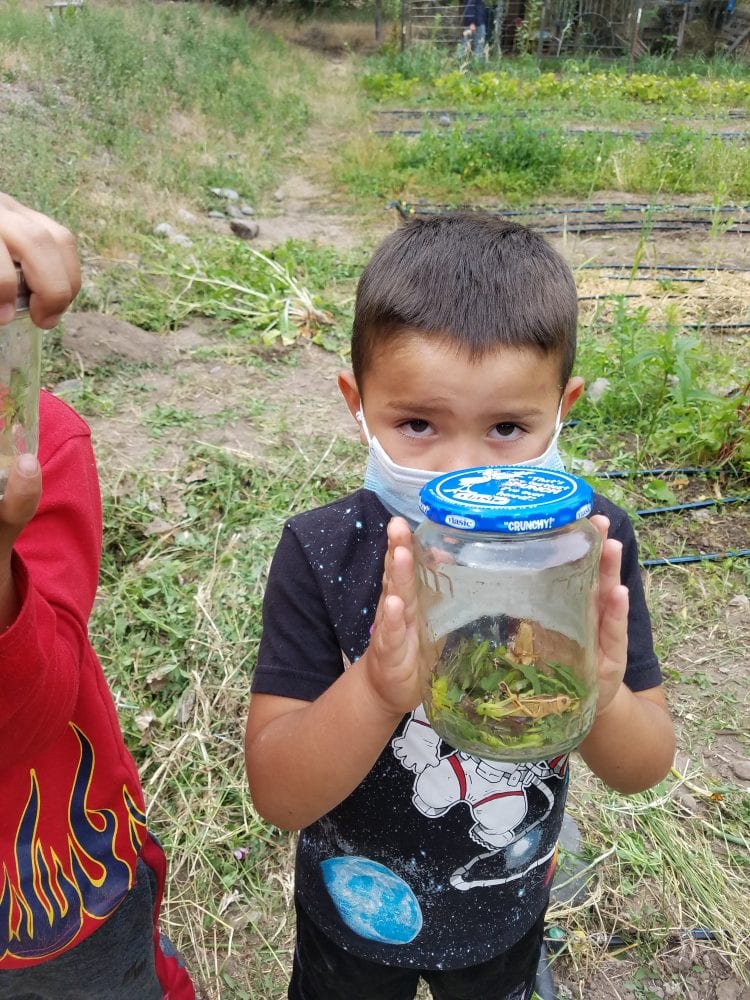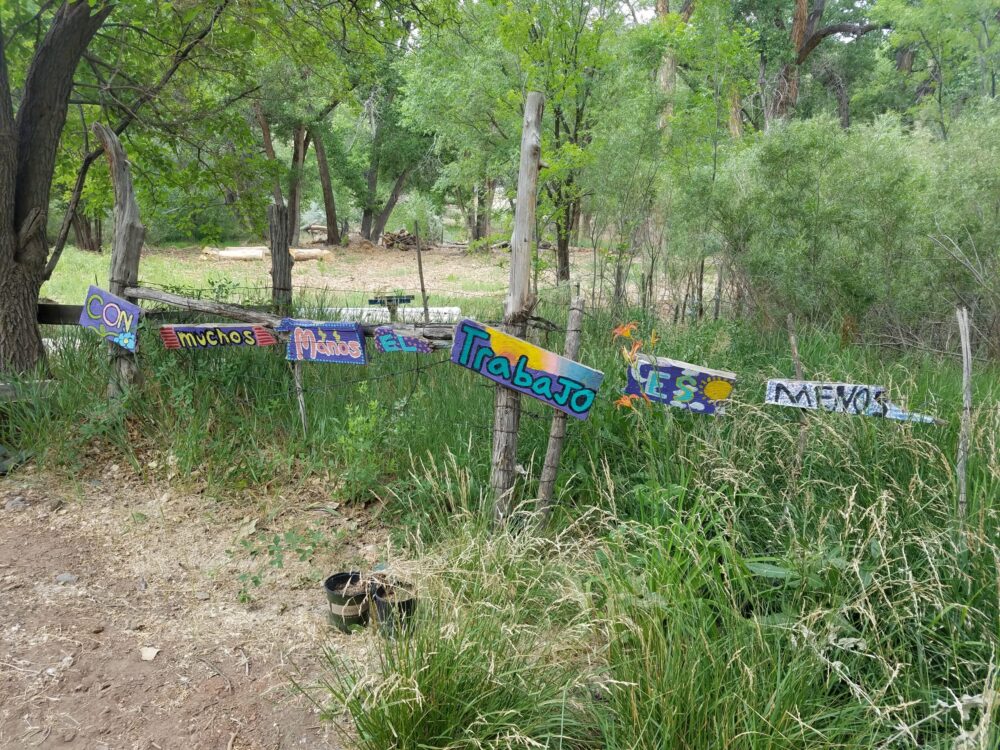
By Siobhan Niklasson, Education Programs Director
Con muchas manos el trabajo es menos reads the sign at the Northern Youth Project Garden in Abiquiú. Many hands make light work. And on this day, everyone has a job to help this community garden grow.
The youngest children are on grasshopper duty. They’re hunting grasshoppers to keep these insects from eating the plants. They already have two jars full.
Other youth are weeding the flower beds. They explain that some of the flowers can be harvested for food, like echinacea for tea, but most of them are meant as food for other creatures: specifically, pollinators. They have milkweed for the butterflies and onions and cosmos for the bees, among other flowers. This colorful bed in the middle of the garden helps nurture a healthy population of insects that pollinate the herbs and vegetables, too.

Two interns are mulching around the plants. Lupita Salazar, the Executive Director of the Northern Youth Project, calls out to them to leave a little open space around each plant. She explains that because of the dry conditions, they mulch like crazy to conserve water. But all of this litter on top of the soil has created a perfect habitat for roly polies and other decomposers, and some of them will eat live plants as well as decaying matter. With some experimentation, the gardeners found that leaving a little space mulch-free around the base of each plant helps protect the plants from these sun-shy creatures.
In the northwest corner of the garden, where the sun heats the soil the most, is the herb garden. The garden staff and youth created a waffle garden to retain moisture. This style of dry-land gardening, where small earth berms are raised around each planting square, was first practiced at Zuni Pueblo, and continues to be used today by water-conscious gardeners at Zuni and elsewhere.
The herb garden is also the oldest part of this community garden, which was started in 2009 by Leona Hillary, a staff member at the Boys and Girls Club in Abiquiú. She realized that once the students aged out of the Club, there weren’t a lot of things for them to do locally. Teens came to her and asked for her help to create a program for them. So the garden was started as a way for youth to find meaningful ways to spend their time and participate in their community. Today, the Northern Youth Project focuses on arts, agriculture, and leadership skills, and serves youth ages 12-21 from Abiquiú and nearby communities. Some of the young people working in the garden today are siblings of the initial teens that were involved and started the project 11 years ago.

The youth harvest their produce and learn to prepare it in monthly cooking classes. They also sell produce at the Abiquiú Farmers’ Market and distribute their herbs in Green Gift bags to local students and families as a COVID relief program.
Veronica, one of the interns, first learned about the garden after buying plants at a virtual plant sale and seed exchange. Her internship is paid by a workforce training program run by Help New Mexico. She’s been able to apply some of the things she’s learned at work to her home garden, like planting to take advantage of the natural flow of water through the site.
The other intern, Eddie, is interested in the irrigation system. The garden is watered by a spring onsite, and from the local acequia once a week. He’s had the opportunity to take agriculture classes at his high school, and sees this internship as a start to what he wants to do as a career.
The Project recently partnered with Padilla Lumber to clear an area of bosque adjacent to their garden. They’re considering extending the irrigation ditch to this area, and hope to be able to plant corn and squash. On the day that I visited, they noticed milkweed springing up in this area. Just as milkweed brings butterflies, this growing community garden is fostering a new generation of land-literate youth.


Thanks for a wonderful and instructive report!